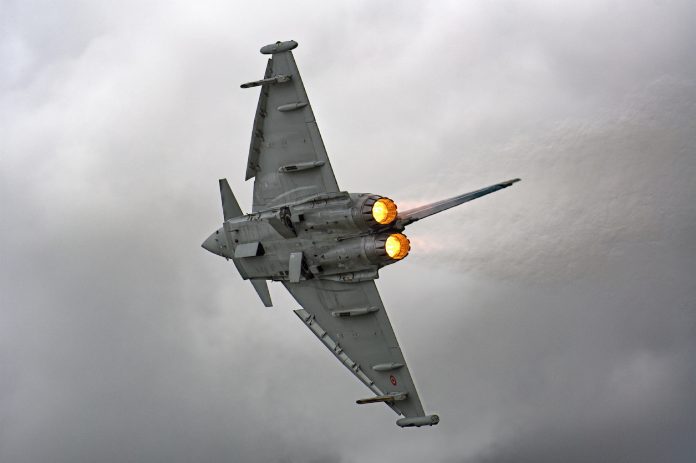Forbes McKenzie, CEO of McKenzie Intelligence Services Ltd, discusses how to close the defence skills gap and emphasises the need for the UK to collaborate with Europe
Leaving the European Union (EU) has heightened risks to UK security. A misplaced approach to national defence threatens to replace the former, coordinated response provided by the EU with an over-reliance on external powers like the United States. Such a dependency could compromise the very autonomy we seek to protect while limiting our influence on global security matters.
It could also delay response to regional threats. Therefore, it is vital that we look to our geographical allies – who share similar democratic beliefs – to support the creation of a robust, self-sustaining defence strategy: one that’s capable of protecting all national interests – be it in space, on land, or at sea – without significantly increasing costs.
Strength in defence and security collaboration
Collaboration is key for any nation serious about safeguarding sovereignty, and pooling resources with EU nations makes strategic and financial sense. We have already seen the success of a centralised approach through the European Defence Fund, where joint assets such as the Typhoon fighter jet shared between multiple air forces across Europe allow for shared security, skills, and costs.
Thus, a boost in such funds must be prioritised, alongside an increased focus on interoperability, to guarantee that the various national defence systems involved can communicate with one another and function seamlessly. Without this, Europe’s security efforts risk inefficiency and failure, regardless of investment in tanks, aircraft, hardware, software, and training. We need interoperability as the foundation of coordinated defence.
Bridging the defence skills gap across borders
A shared approach likewise requires the pooling of knowledge and human resources. An ageing workforce across Europe – combined with rapidly evolving technological advancements across fields such as cybersecurity and artificial intelligence – calls for solutions to address the skills gap. Left unaddressed, the short, uneven supply of defence professionals would weaken Europe’s military readiness to respond, making sharing knowledge and best practices across nations vital.
This contradicts the sovereign interest in protecting sensitive information and intellectual property, which is why developing agreed-upon communication protocols – strictly limited to the agencies involved to guarantee discretion – is key. Sovereign concerns would still be respected under a larger, shared objective of fostering a defence workforce capable of meeting both national and international security requirements.
Such protocols would likewise allow for equal, crossborder personnel training in such issues as good data practices and interoperable technologies and skills, better allowing Europe’s nations to collectively address the current skill gap as the region becomes more resilient to shared threats.
Technological skills for modern defence
The early cultivation of critical skills across Europe’s universities and research hubs is likewise key, allowing us to tangibly shape the defence talent pipeline to prepare for emerging threats. Indeed, if we are to stand up against new, hybrid threats powered by technological developments, there’s a strong need for continuous innovation.
Failure to keep up could soon see Europe’s defence exploited by foreign actors, with the UK’s near loss of the steel industry to foreign markets serving as a cautionary tale. We must maintain a tight-knit web for Europe’s defence – something we can only achieve by sharing and continually updating skills and knowledge.
Interagency collaboration is key to countering hybrid warfare
This close, keen approach to developing defence will likewise protect us from emerging threats from hybrid warfare, encompassing cyber, space and information operations alongside traditional military actions. There’s just one problem: coordination. Agencies like MI5, MI6, Government Communications Headquarters (GCHQ) and their European counterparts each have their own specialist roles and responsibilities that collectively contribute to the region’s security. However, each agency also operates independently, with its own budgets and thoughts.
Exemplified by Russia’s actions in Ukraine and its cyber-interference in Western States, hybrid warfare requires a united European response – something known, in military terms, as “a concentration of effort”. In other words, we need to overcome the coordination challenge to bring multiple agencies together under a single focus. Setting up task forces that bring these agencies to the same table – with clear, defined outcomes – is essential to maximising the collective impact of Europe’s expertise and resources.
Security: A shared timeline
Effective counteraction of both hybrid and other security threats likewise demands a nuanced understanding of the decision-making environment, where a complete overview of all of Europe’s potential threats – backed by real-time intelligence – allows the region to plan for both immediate response and longer-term strategy. This requires coordinated evaluation of all decision points (or ‘gates) within broader cycles, with effective management leading to improved response efficiency and organisation of resources.
The future of UK defence: A united front
Ultimately, the future of UK defence within Europe will be shaped by how effectively we can foster unity across our many agencies, nations, and skillsets. Indeed, to maintain security in the face of evolving global challenges, we must retain a firm focus on interoperability, knowledge-sharing, and up-to-date information, as we continue to cultivate a shared skilled defence workforce as the number one priority











